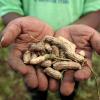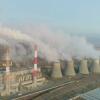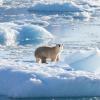Climate & Environment
 Bringing together social and environmental scientists, CIRES’ new Center for Social and Environmental Futures will facilitate cutting-edge research, education and outreach activities focused on the human dimensions of environmental problems.
Bringing together social and environmental scientists, CIRES’ new Center for Social and Environmental Futures will facilitate cutting-edge research, education and outreach activities focused on the human dimensions of environmental problems. Graduate students in CU’s Masters in the Environment program recently journeyed into the Amazon and Atlantic forests with the Colorado-Brazil Program for Sustainable Development Education, where they were taught to keep human interest at the heart of conservation and climate change efforts.
Graduate students in CU’s Masters in the Environment program recently journeyed into the Amazon and Atlantic forests with the Colorado-Brazil Program for Sustainable Development Education, where they were taught to keep human interest at the heart of conservation and climate change efforts. A new report from CU Boulder and Colorado State University outlines how a variety of emerging technologies can help water managers, landowners and policymakers improve western water management in the face of severe, ongoing drought.
A new report from CU Boulder and Colorado State University outlines how a variety of emerging technologies can help water managers, landowners and policymakers improve western water management in the face of severe, ongoing drought. A new CU Boulder-led study ranks the top 32 threats to food security over the next two decades, pointing to climate change and conflict as top culprits and calling for more coordination in building resilient food systems around the globe.
A new CU Boulder-led study ranks the top 32 threats to food security over the next two decades, pointing to climate change and conflict as top culprits and calling for more coordination in building resilient food systems around the globe. Colorado Law's Jonathan Skinner-Thompson discusses the U.S. Supreme Court ruling on West Virginia v. Environmental Protection Agency (EPA), limiting the EPA’s authority under a provision of the Clean Air Act to regulate greenhouse gas emissions from the power sector.
Colorado Law's Jonathan Skinner-Thompson discusses the U.S. Supreme Court ruling on West Virginia v. Environmental Protection Agency (EPA), limiting the EPA’s authority under a provision of the Clean Air Act to regulate greenhouse gas emissions from the power sector. The Cooperative Institute for Research in Environmental Sciences at CU Boulder will continue to support the National Oceanic and Atmospheric Administration's Earth system and data science research under a new agreement.
The Cooperative Institute for Research in Environmental Sciences at CU Boulder will continue to support the National Oceanic and Atmospheric Administration's Earth system and data science research under a new agreement. The gut microbiomes of long-dead animals could give researchers surprising insights into how climate change and other factors have shaped the Rocky Mountains over decades.
The gut microbiomes of long-dead animals could give researchers surprising insights into how climate change and other factors have shaped the Rocky Mountains over decades. The Greenland Place Name Committee has named a glacier “Sermeq Konrad Steffen” after the late Konrad Steffen, former director of CIRES, who made exceptional contributions to Greenlandic society and science.
The Greenland Place Name Committee has named a glacier “Sermeq Konrad Steffen” after the late Konrad Steffen, former director of CIRES, who made exceptional contributions to Greenlandic society and science. A new population of polar bears documented on the southeast coast of Greenland use glacier ice to survive, despite limited access to sea ice. This small, genetically distinct group of polar bears could be important to the future of the species in a warming world.
A new population of polar bears documented on the southeast coast of Greenland use glacier ice to survive, despite limited access to sea ice. This small, genetically distinct group of polar bears could be important to the future of the species in a warming world. The public is invited to celebrate at a six-night, in-person seminar series with dates June 21–29, featuring talks from local artists and scientists over dinner at the newly renovated Wildrose Dining Hall.
The public is invited to celebrate at a six-night, in-person seminar series with dates June 21–29, featuring talks from local artists and scientists over dinner at the newly renovated Wildrose Dining Hall.


